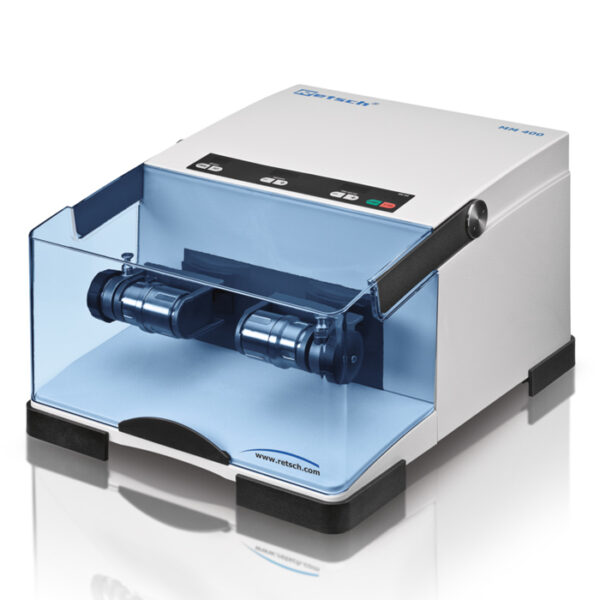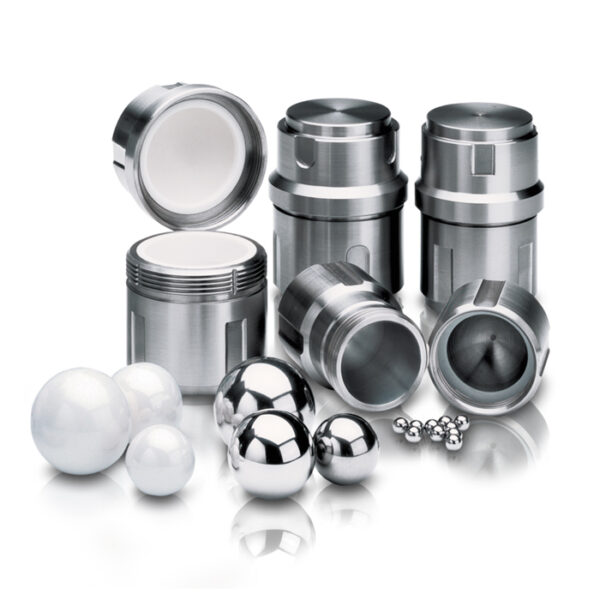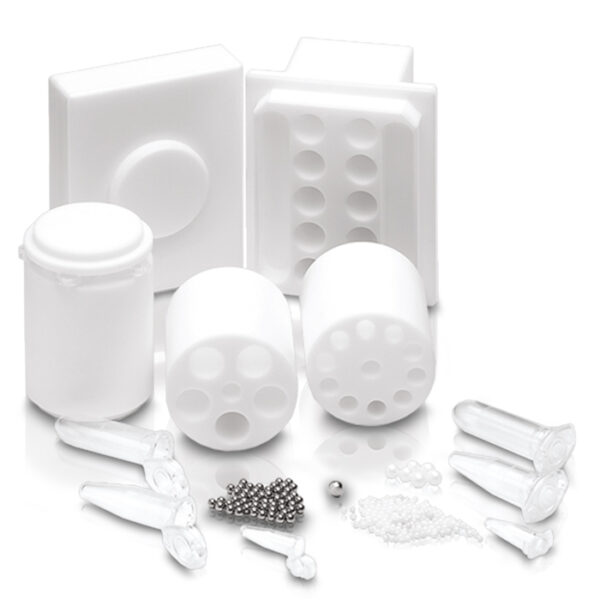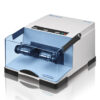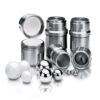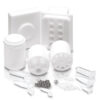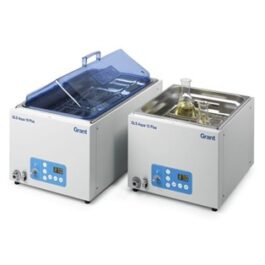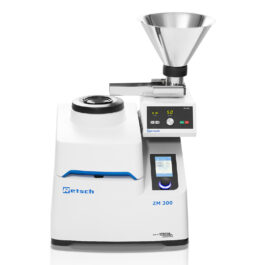Retsch Mixer Mill MM 400
The Retsch mixer mill MM 400 is a compact versatile bench-top unit which has been developed specially for dry, wet and cryogenic grinding of small amounts of sample.
It can mix and homogenize powders and suspensions in only a few seconds. It is also perfectly suitable for the disruption of biological cells as well as for DNA/RNA and protein extraction. With its high performance and great flexibility the mixer mill MM 400 is a great tool for your laboratory.
| Applications | size reduction, mixing, homogenization, cell disruption, cryogenic grinding |
| Field of application | agriculture, biology, chemistry / plastics, construction materials, engineering / electronics, environment / recycling, food, geology / metallurgy, glass / ceramics, medicine / pharmaceuticals |
| Feed material | hard, medium-hard, soft, brittle, elastic, fibrous |
| Size reduction principle | impact, friction |
| Material feed size* | ≤ 8 mm |
| Final fineness* | ~ 5 µm |
| Batch size / feed quantity* | max. 2 x 20 ml |
| No. of grinding stations | 2 |
| Setting of vibrational frequency | digital, 3 – 30 Hz (180 – 1800 min-1) |
| Typical mean grinding time | 30 s – 2 min |
| Dry grinding | yes |
| Wet grinding | yes |
| Cryogenic grinding | yes |
| Cell disruption with reaction vials | yes, up to 20 x 2.0 ml |
| Self-centering clamping device | yes |
| Type of grinding jars | screw top design |
| Material of grinding tools | hardened steel, stainless steel, tungsten carbide, agate, zirconium oxide, PTFE |
| Grinding jar sizes | 1.5 ml / 5 ml / 10 ml / 25 ml / 35 ml / 50ml |
| Setting of grinding time | digital, 10 s – 99 min |
| Storable SOPs | 9 |
| Electrical supply data | 100-240 V, 50/60 Hz |
| Power connection | 1-phase |
| Protection code | IP 30 |
| Power consumption | 150 W |
| W x H x D closed | 371 x 266 x 461 mm |
| Net weight | ~ 26 kg |
| Standards | CE |
*depending on feed material and instrument configuration/settings
UK / Europe / Global Delivery
Developed in collaboration with our clients / Bespoke design service
Committed to developing sustainable & practical improvements for scientists worldwide

Martyn Fordham, MD

